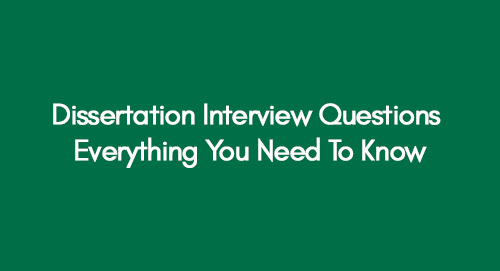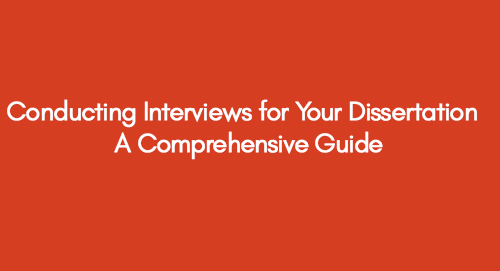
Benefits of Hiring a Professional Assignment Writing Service| Top Reasons
November 15, 2022
Neuromarketing Research Topics | 120 Trending Titles in 2025
November 16, 2022In school and research, citing sources is super important. It proves you did your homework and lets others double-check your information. When you write in the third person, remember not to use words like "I" or "you." Stick to third-person words to keep it right.
Explore What is Third Person Writing in Essays
In academic writing, the third-person point of view is usually more explicit, allowing a writer to come across as more objective. When using third-person pronouns, the writer will not refer to themselves in the essay but instead use sources to support their claims.
You can use third-person writing in ads and persuasive stuff, too. It stops things from sounding too one-sided like they do in the first-person.
Learn More About Writing a Third Person in Academic Work
Writing in the third person means you step away from your essay completely. It might seem tough at first, but it gets easier with practice. Your argument becomes much more convincing when you remove yourself from the equation and let the facts speak for themselves. Discover the finesse of third-person writing in our latest blog post, where we'll guide you through the nuances of adopting this versatile style for impactful communication.
Get 3+ Free Custom Topics within 24 hours;
How to Write in Third Person
The secret to writing well in the third person is to keep in mind that you're not the main character. Your role is to give reliable information and let the reader draw their own conclusions.
Learn how to effectively employ this approach in your research work
You should avoid using contractions such as "I'm," "you're," or "we'll." Writing in complete sentences will improve the caliber and professionalism of your essay.
- When writing in the third person, always use the pronoun "he, she, it" instead of "I, we, you."
- Use proper grammar and punctuation when writing in the third person.
- Be consistent with your point of view - don't alternate between writing in the third and first person in the same paragraph.
- Keep your audience in mind - who are you writing for? Make sure that your language and tone are acceptable for them.
- Remember that you are an observer in the third person point of view - so don't insert your own opinions or feelings into the story.
Types of 3rd Person Writing Point of View
There are three different kinds of third-person points of view:
- A limited point of view means that the narrator only knows what one character knows.
- The objective point of view means that the narrator does not reveal anything about any character's thoughts or feelings.
- An omniscient point of view means that the narrator knows everything about all characters in the story.
Third Person Limited vs. Objective vs. Omniscient
Considering these three points of view as different cameras filming a scene can be helpful.
- A limited point of view would be like having a camera following one character around so that the audience only sees what that character sees.
- The objective point of view would be like having a camera positioned in one spot so that the audience sees everything that happens but doesn't know what the characters think or feel.
- An omniscient point of view would be like having a camera that can film everything happening at once—the audience knows everything about all characters in the story.
Which Essays are Written from a 3rd Person's Point of View?
1. Expository Essays
Expository essays are written in the third person because they explain something. The writer is not a character in the story and is instead just an observer. This type of essay is often used to describe a concept or idea.
2. Argumentative Essays
Third-person narration is sometimes used while writing argumentative essays. Because the author is trying to persuade the reader of something,, and using the first person would make it seem like the writer is biased.
3. Research Papers
Another sort of essay that is frequently written in the third person is the research paper. It is because the paper is meant to be factual account of what has been researched on a particular topic.
4. Literary Analysis Essays
Literary analysis essays can be written in either the first or third-person point of view. However, the third-person point of view is more common because it allows the writer to remain objective and unbiased when discussing the author’s work.
5. Descriptive Essays
Third-person views are sometimes used while writing descriptive essays.This is because the author is describing something to the reader without including their own opinion on the matter.
6. Compare and Contrast Essays
Compare and contrast essays can be written in either first or third-person point of view. However, it is generally more accessible for the author to write in the third person point of view, allowing them to compare and contrast the two subjects more objectively.
7. Personal Narratives
Typically, first-person narratives are used in personal essays, as they are about the author's personal experiences. However, writing a personal narrative in the third person is possible if the author is telling their story from a distance and does not include their own emotions or thoughts.
What are the Benefits of Writing in the 3rd Person?
1. More Objective
Writing in the third person keeps it fair and factual. First person might bring in your own biases. However, when you write in the third person, you can remain unbiased and present the facts without injecting your opinion. It can make your writing more credible and trustworthy.
2. More Engaging
Another benefit of writing in the third person is that it can make your writing more engaging for the reader. When you write in the first person, the reader may feel they are being talked down to or lectured, but in third person, they become part of the story, making it more enjoyable and keeping them engaged.
3. Easier to Write Complex Concepts
Third-person writing simplifies complex concepts. First person can sometimes sound condescending, but in the third person, you can present information in a way that is easy for the reader to understand. It will make your writing more accessible to a broader audience.
4. Makes Your Writing More Professional
Writing in the third person makes your writing sound more professional and authoritative compared to first-person writing, which can sometimes come across as informal or inexperienced. So, using the third person can give your writing a polished and expert vibe.
5. Helps You Maintain a Consistent Tone
Writing in the first person can lead to unintentional tone changes in your piece. For instance, you might begin formally but shift to a casual tone unknowingly. On the other hand, using the third person helps maintain consistent and polished writing throughout.
6. Greater Flexibility
Writing in the third person offers more viewpoint flexibility compared to the first person, allowing you to present information from any perspective, which is valuable for discussing controversial topics.
7. Avoiding Bias
Writing in the first person is prone to bias as it reflects personal viewpoints and interpretations. In contrast, when you write in the third person, you can remain unbiased and present information objectively.
Conclusion
Third-person writing is an essential skill all students must master to succeed in academia. This writing style removes the author from the equation and allows the facts to speak for themselves.
While it may take some practice to get used to writing in this style, it is well worth the effort as it will make your essays sound more credible and polished.
You may Contact Premier Dissertations to get your assignment done from 3rd person point of view.
Get an Immediate Response
Discuss your custom requirements with our writers
Free Online Plagiarism Checker For Students
We will email you the report within 24 hours.
Upload your file for free plagiarism


























